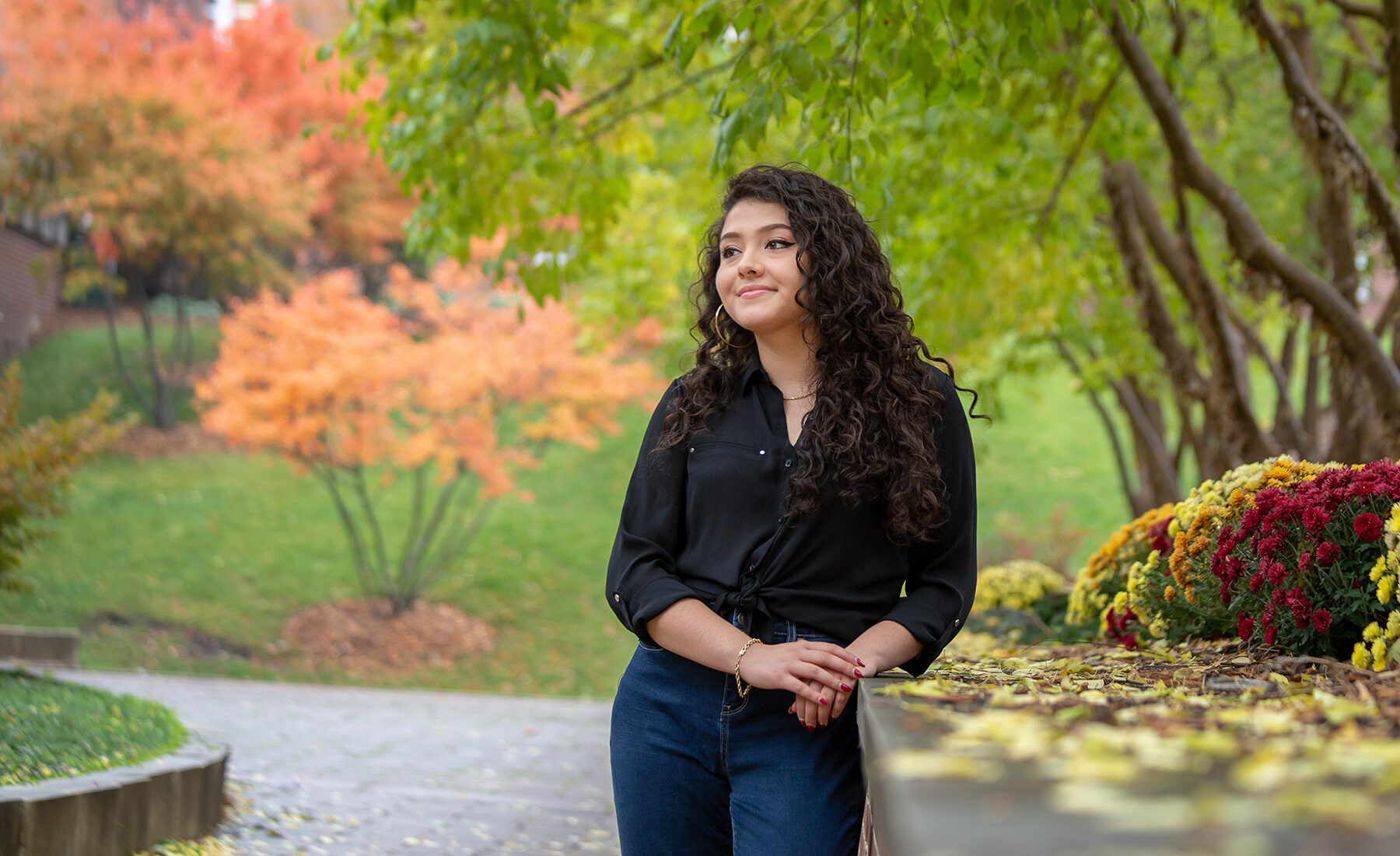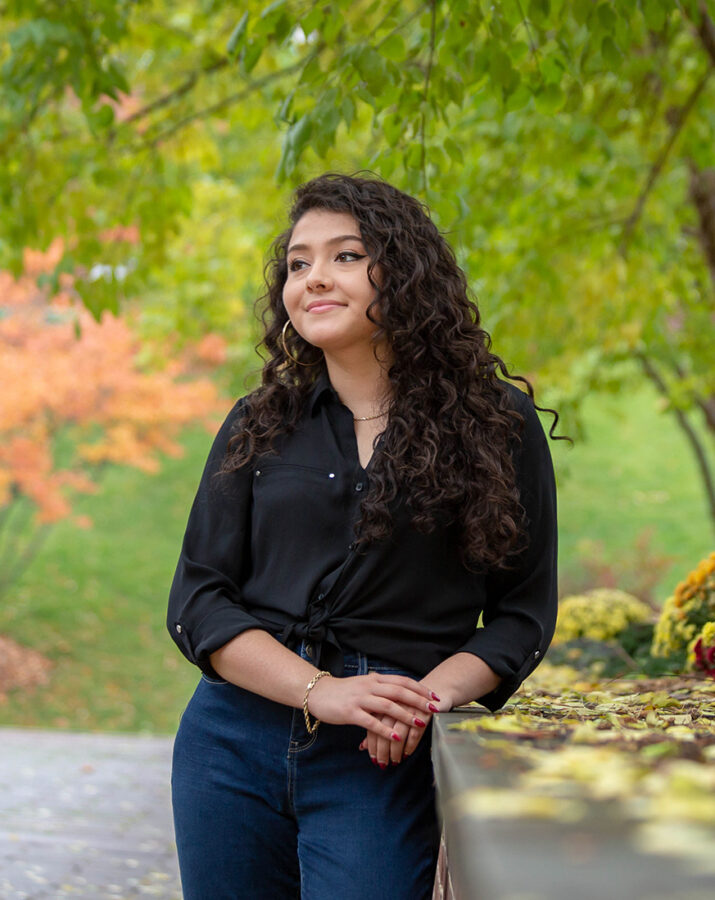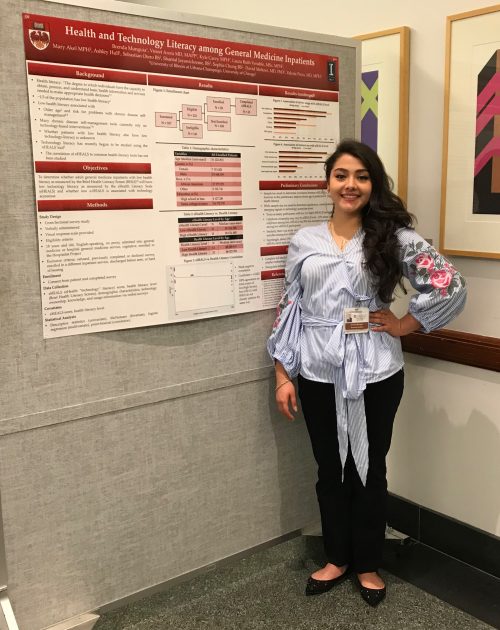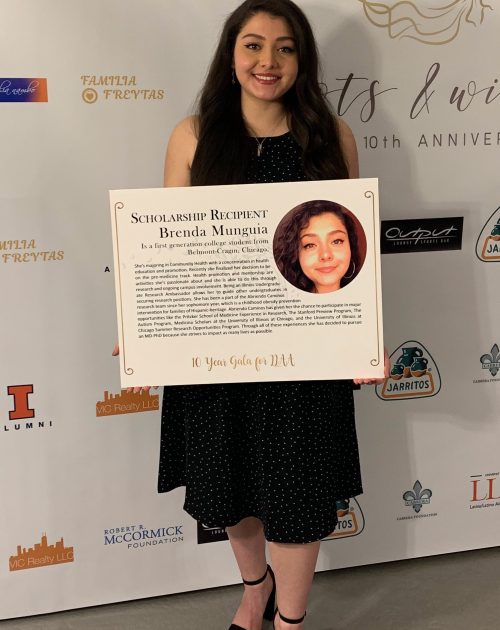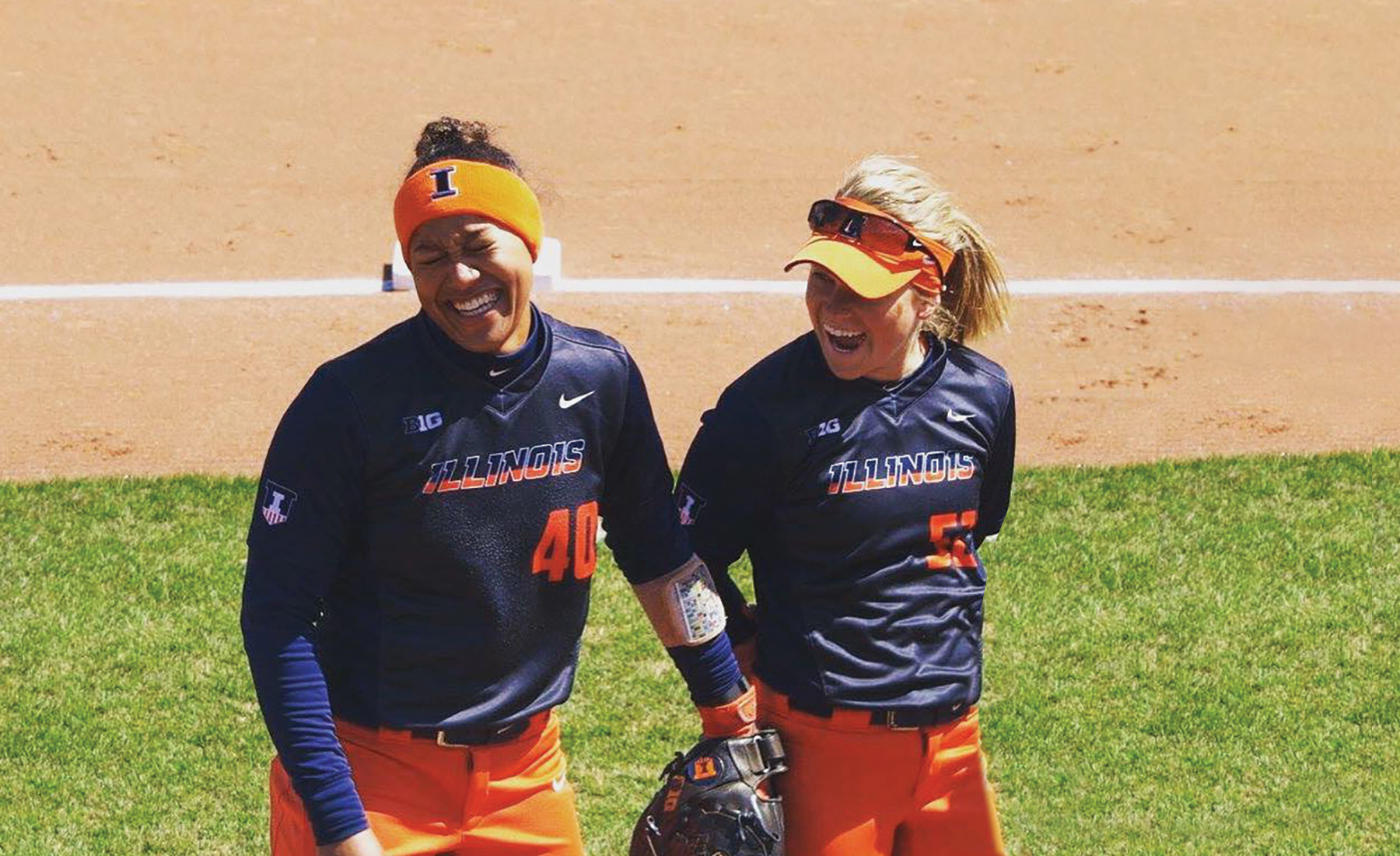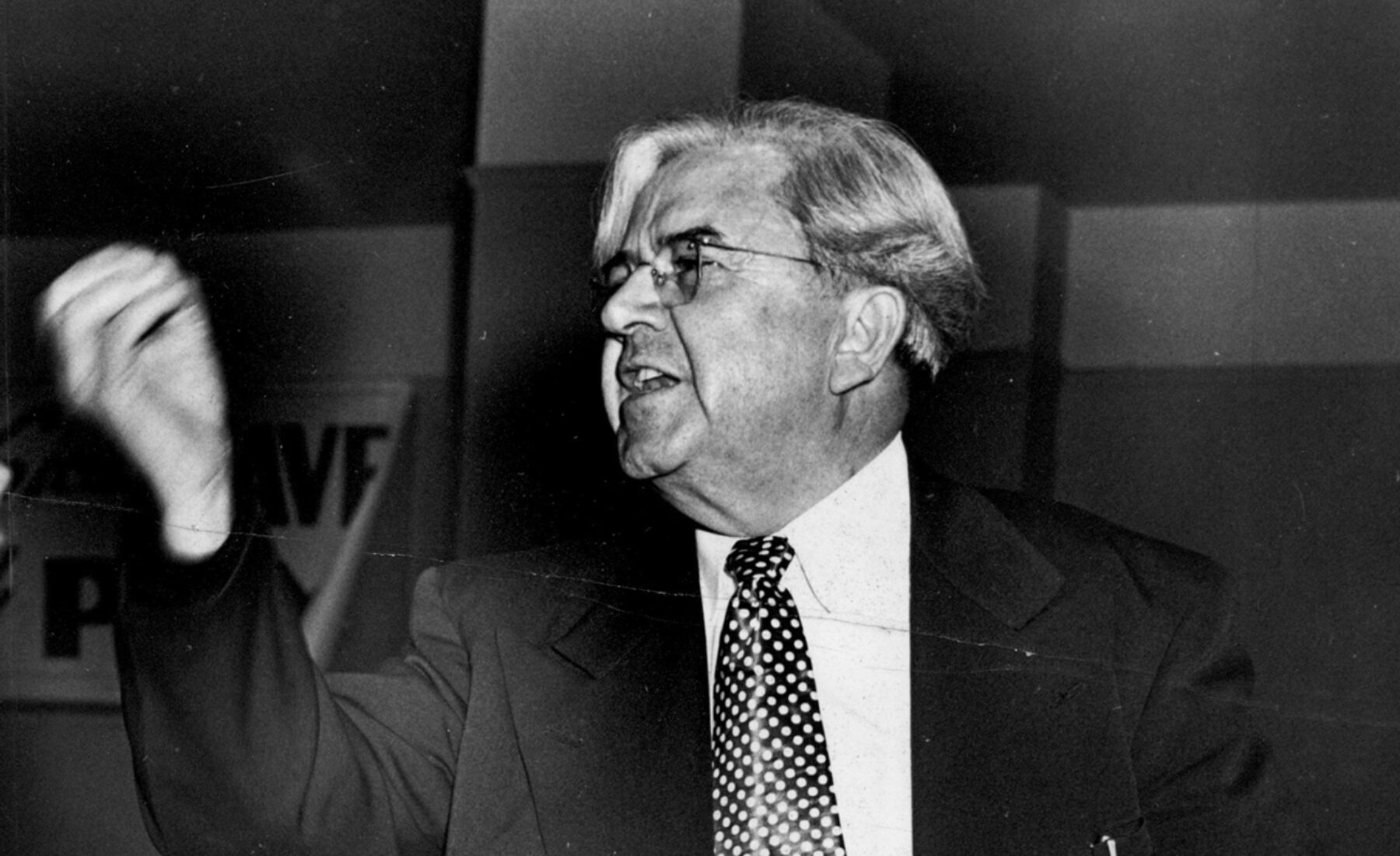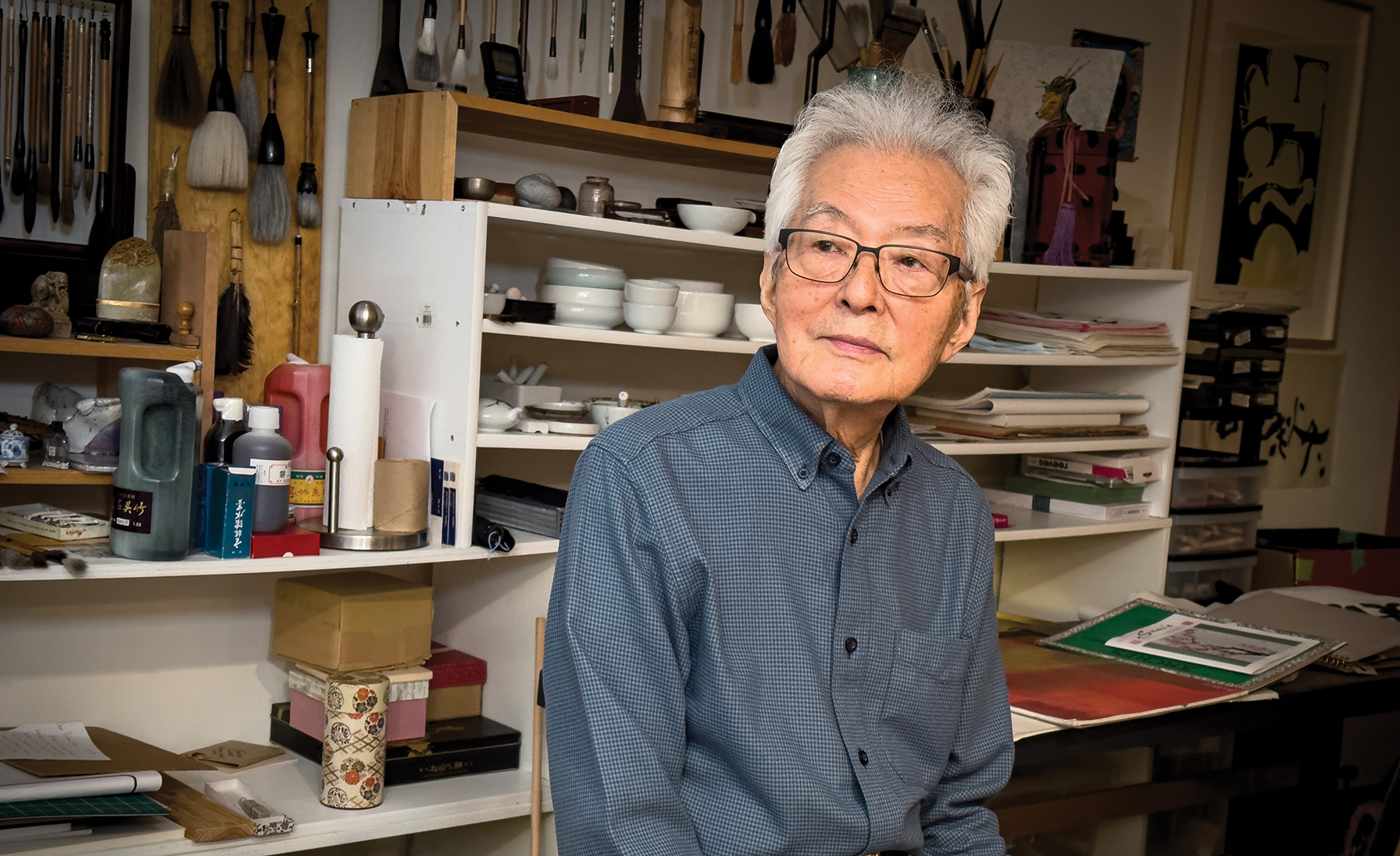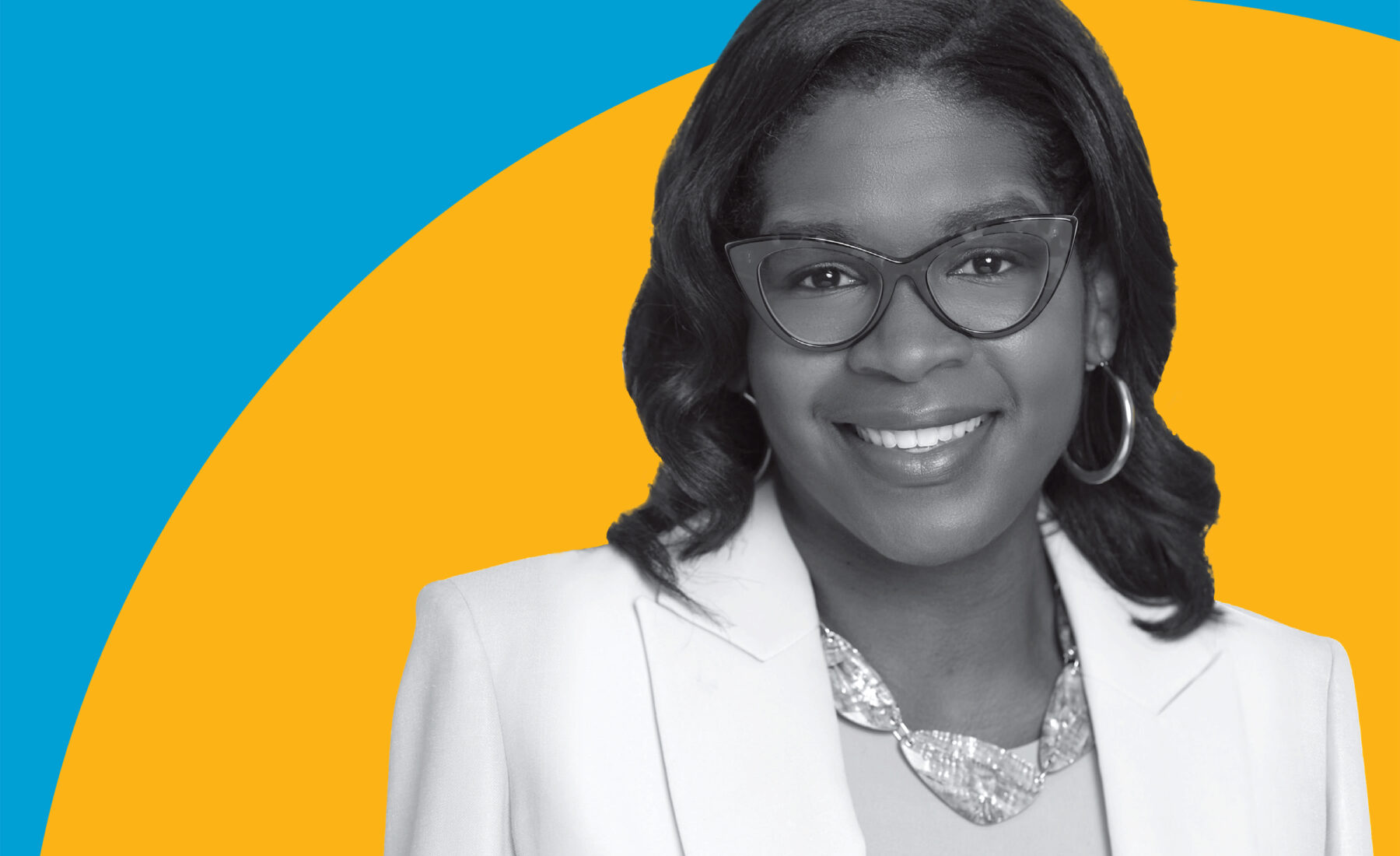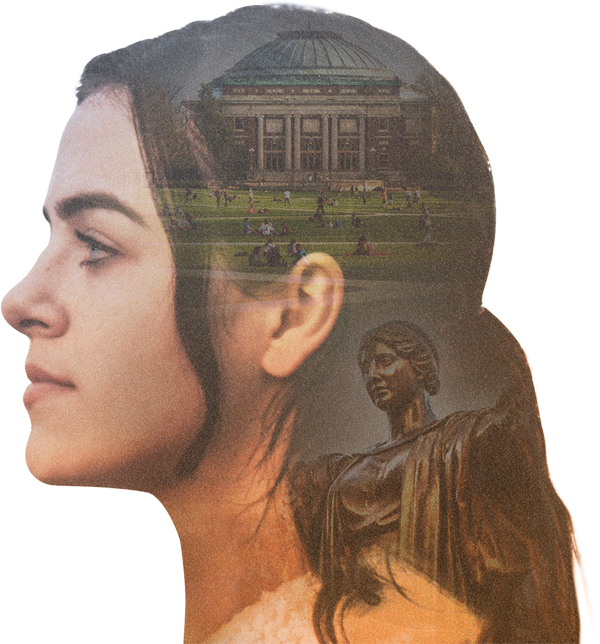How did you decide to come to Illinois and to study Community Health?
A majority of the schools I had applied to were either local, small, and/or no more than an hour away from where I lived. Those schools had programs, majors, and curriculums that I was interested in, but I mainly applied to those schools because they were close to home. I was still open to the idea of going away for college and my family was fully supportive of whatever decision I decided to make. In fact, they encouraged me to apply to bigger, farther schools. I applied to three Big Ten schools, Illinois being one of them. I had really taken my time to complete Illinois’ application, and I put even more time and attention to my essay. My college counselor at the time was an alumna of Illinois, so she helped me craft and perfect my essay. I asked my college counselor what majoring in Community Health was about, looked at the descriptions of the courses offered in the major, and did some additional research online about the subject of community health itself. After taking a couple courses in the community health major my freshman year I realized that I really enjoyed the content of the major and decided to stick with it. The information that I find most interesting about my major are mental health, health disparities, and cultural competency and sensitivity in underrepresented groups.
You have been able to be a part of multiple research projects while an undergraduate. Can you talk about why that experience was so influential to you?
Research has been immensely influential for me. It has helped me with my confidence, to be comfortable with being uncomfortable, allowed me to learn about the different aspects of health of the Latinx population, provided me with mentorship, and given me networking opportunities in academia.
When I first started doing research, I had absolutely no idea what I was doing. There are different fields, different ways of doing data analysis, different ways of actually composing a presentation or poster—it can all be super overwhelming. Every principal investigator and lab has their preferred ways of going about their own research, so I always had to learn different types of trainings, procedures, ways of organizing and collecting data, etc. Because of this, I’ve grown accustomed to the fact that I won’t always know how to do everything. I always try on my own at first to see if I can figure things out. However, if I continue to be confused or unsure of what I’m doing, I’m not afraid to ask for help after I make a genuine effort to make sense of things. It’s totally okay to ask for as much help as you need. It shows others on the research team that you care and pay attention to details. When I actually started to present my research projects in front of other people at conferences, it helped me get out of my comfort zone by teaching myself how to project myself confidently in front of an audience. I never know what questions I’ll get from the audience. However, I always try to make up my own questions or have my peers ask me some, so I’m well prepared. Research has taught me to discipline myself and be fine with not knowing how to perform certain tasks, because that’s what I’m there for. I’m there to learn and grow.
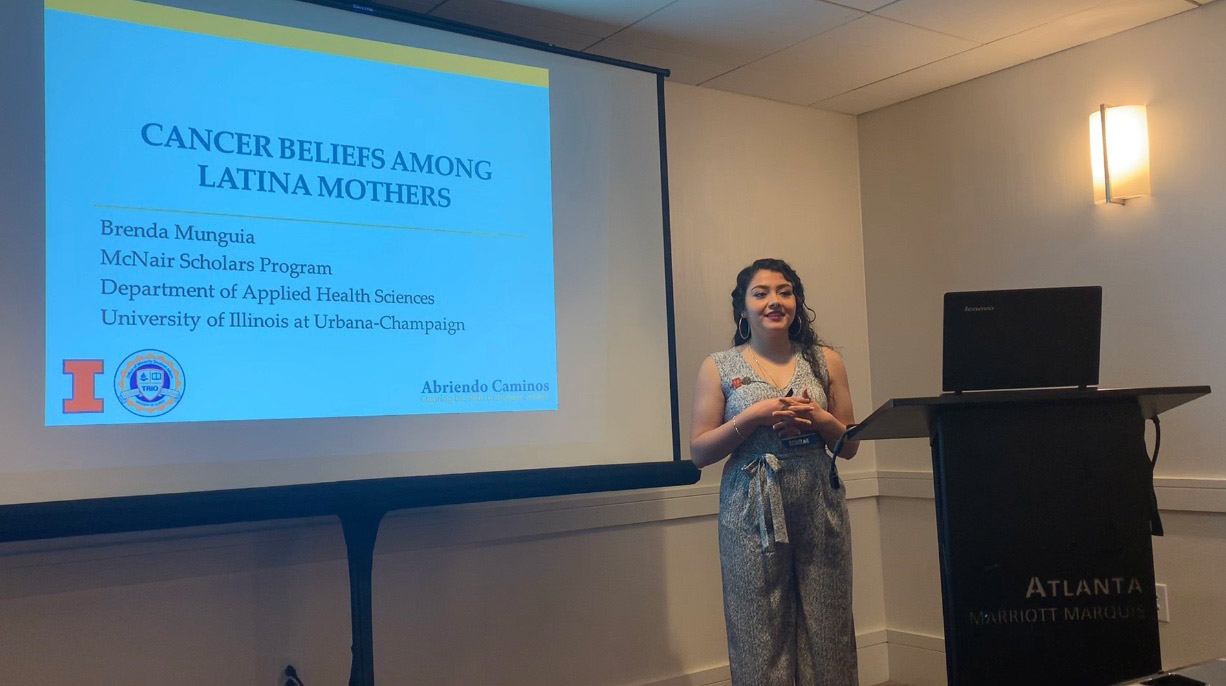
A majority of the projects I’ve researched are concerning the Latinx population. Therefore, I’ve been able to learn about various aspects of their health. With the findings I’ve produced, it gives me the opportunity to advocate and stress the importance of addressing the needs of this group of people in order for them to have better health outcomes. The projects I’ve been able to do include: Community Program Satisfaction and the Needs of Weight Management among Children of Migrant Farm Working Families, Cancer Beliefs among Latina Mothers, Health and Technology Literacy among General Medicine Inpatients, Promoting Root Vegetable and Legume Consumption, Older Latinos’ Perceived Barriers for Technology Adoption, and Weight Perceptions of Parents and the Snacking Practices that Contribute to Rising Overweight and Obesity.
I’ve been blessed to carry out all the projects I’ve done through various research programs such as the McNair Summer Research Institute, Pritzker School of Medicine Experience in Research, and University of Illinois at Chicago Summer Research Opportunities Program. I’ve had amazing mentors who were always very patient with me, taught me new research techniques, and overall have contributed to my growth as a researcher.
Being exposed to many institutions has also taught me how to network with others. I’ve been able to meet many researchers and discuss with them their projects and our combined interests. It’s been a great opportunity to put my name out there and teaches you how to “sell yourself.” The opportunity I’ve had that really taught me how to network and put my name out there was the ADVANCE Undergraduate Institute (AUI) at Stanford University back in 2018. It was a three-day immersive experience for students with an interest in the biosciences. I met with graduate students, faculty, and admissions staff from the program. I was able to complete a mock interview with a PhD candidate in the Department of Biology, and overall I learned more about the Stanford University Medical School, PhD, and MD/PhD program in the biosciences. Even after the program was done, I’ve still been in contact with the person who runs it and provide him with updates on my educational career.
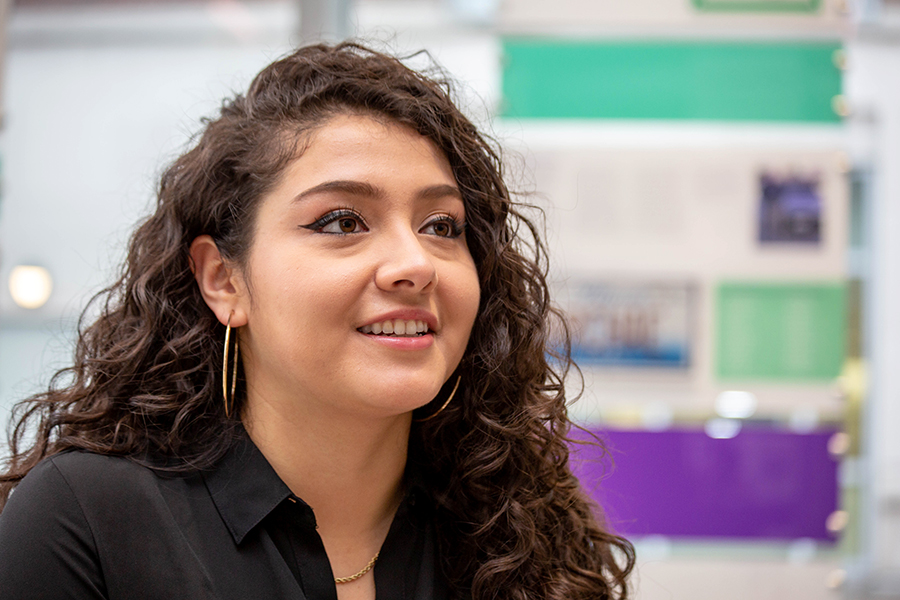
Can you explain more about your past involvement with the The Autism Program (TAP) and your current experience as an Illinois Undergraduate Research Ambassador (IURA)?
In the spring of 2018, I became an intern for TAP, which has its own resource room at the Family Resiliency Center and provides free learning materials for educators, professionals, and families who work with people or have children with autism. I staffed the resource room, created and translated learning materials to Spanish. I co-facilitated a series of workshops named SibSTAR with graduate students. The purpose of SibSTAR was to support children who have siblings with autism and provide them with guidance on how they can best support their siblings. We accomplished this by teaching them about autism and organizing games and discussions around support strategies.
My research experiences motivated me to become a mentor for students and help them navigate their way in finding research opportunities, so I became an Illinois Undergraduate Research Ambassador (IURA) for the Office of Undergraduate Research (OUR). I was in the first cohort of IURAs and have facilitated workshops that focus on getting students started in research, promoted the OUR, and mentored students. Students have scheduled one-on-one meetings with me, so I can help them find research positions. With my fellow IURAs, we created two proposals to increase and promote the resources offered by the OUR. The first proposal was to create a new workshop for the purpose of assisting students in writing about their experiences when applying for research positions or opportunities. The second proposal was to create a presentation to utilize in promoting the OUR to students through various outlets like registered student organizations, class courses, and programs. Because I was very active in regularly promoting the OUR in different courses and RSOs, I was promoted to be the Outreach Committee Leader for the IURA program. With my Outreach Committee team, we created a presentation we show to different classes, departments, and organizations during events to inform students of the resources and opportunities the OUR provides. Along with this, we will be the ones welcoming potential future Illini during Admitted Student Days in the spring. During these days, we inform them of who we are and what the OUR can offer them if they decide to attend this school.
How has being a scholarship recipient shaped your undergraduate experience?
Being a scholarship recipient has helped me tremendously as an undergraduate student. It’s allowed me to actually be able to afford attending this school, and focus more on my studies, without having to worry too much about certain finances. Some of the scholarships I have received have come along with an essay question, so it’s also taught me to improve my writing by learning how to write concisely.
What are your plans after graduation?
Currently, I’m deciding between going to medical school or graduate school. To do this, I am planning to shadow doctors back in Chicago and work in a clinical setting to get more exposure to the medical field. Right now, I’m considering working as scribe or a translator in a clinic or hospital after I graduate.
This story was published .